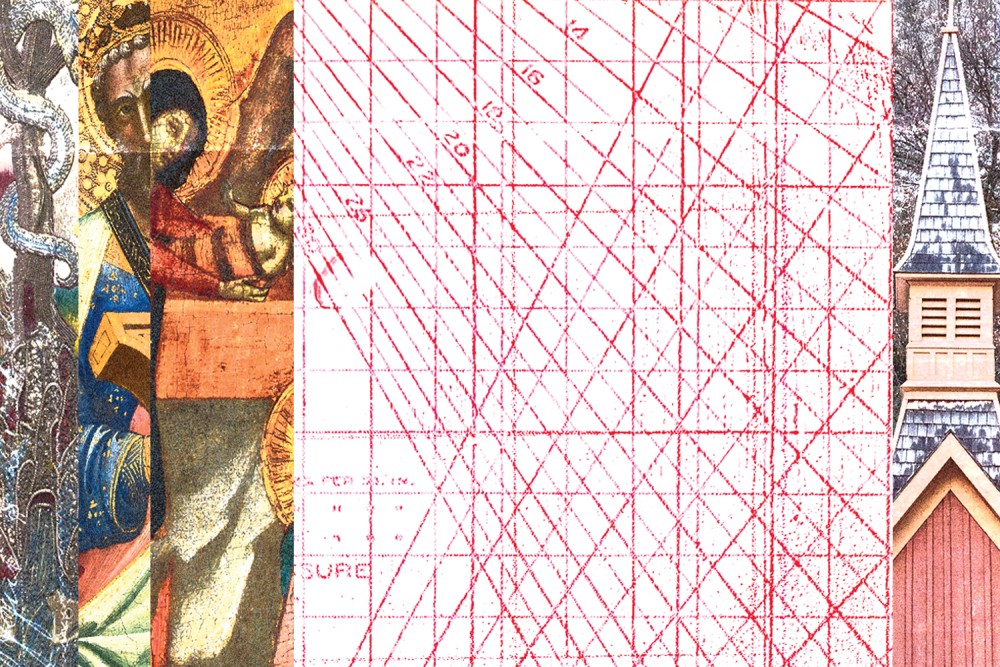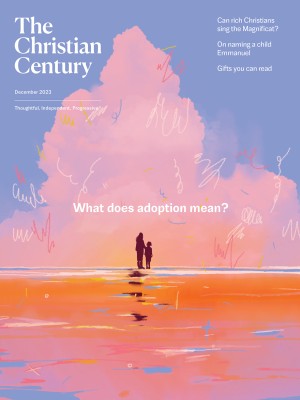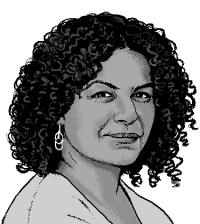Between the Bible and me
The version of Christian history I grew up with hit fast-forward after John’s Revelation and held it until the late 20th century.

(Century illustration)
In the beginning there was God, Adam, Eve, and a snake. Then came the patriarchs, judges, kings, and prophets. Then Mary, Jesus, the disciples, and Paul. And then? Then came me! That is, then came the present. Then came now.
This is the brief but spectacular version of Christian history I grew up with. It unapologetically pressed a fast-forward button after John the Divine’s colorful Revelation and held it down until, oh, the late 20th century. It was as if nothing of import or consequence happened in the intervening millennia—as if what we believe and practice now came directly from the first century.
Read our latest issue or browse back issues.
My experience might be a bit extreme, but I don’t think it’s wholly unique in contemporary American Christianity. We are rather ahistorical creatures. Our lectionary cycles, our Sunday school curricula, our adult formation materials—these typically maintain the yawning 2,000-year gap between biblical times and our times. If we speak of our sacred past at all, we speak of Moses and Miriam, Peter and Mary Magdalene, John the Baptist and maybe Junia. We don’t speak nearly as often of Origen, Perpetua, Justin, or Ephrem. We have no idea how and why we are heirs of the debates and debacles that rocked the church in the fourth, eighth, 11th, or even 18th centuries. Unless we’re specialists, we don’t dig deep into the lives and loves of the saints, martyrs, heretics, monastics, philosophers, popes, reformers, rebels, poets, truth tellers, and naysayers who made us who we are now.
Why does this matter? There are a host of reasons, but here are just three that increasingly matter to me.
First, scripture exhorts us to remember. In the Hebrew Bible, God consistently self-identifies as a God who desires to be known in history: “I am . . . the God of Abraham, the God of Isaac, the God of Jacob” (Exod. 3:6). “I am the Lord your God, who brought you out of the land of Egypt, out of the house of slavery” (Exod. 20:2). “Remember the former things of old, for I am God, and there is no other” (Isa. 46:9). Jesus, likewise, asks his followers to practice sacramental memory in community: “Do this in remembrance of me” (Luke 22:19). The invitation is specific and grounded; it doesn’t give us the option of practicing an abstracted, sanitized Christianity, untouched by the grittiness of the past.
The God of the Bible is rooted in events and encounters, relationships and reckonings. This incarnational aspect of our faith didn’t end with Jesus’ ascension; it went on and on, touching real people in real circumstances in real time. To meet some of these people in the pages of history is to honor a vast treasure trove of testimony. Let’s not forget what an embodied faith looked like in second-century Rome, seventh-century India, 12th-century Ethiopia. Let’s hold in sacred remembrance how God met, challenged, and transformed the lives of people who preceded us. Let’s remember that they prayed for us, and let’s pray for them in return.
Second, our history connects us to what our creeds call the communion of saints, reminding us not only that we have spiritual ancestors spanning continents and centuries but that we are called to become faithful ancestors ourselves, for all those who will come to the table after us. As I get older, I’m finding this communion—which is both mystical and historical—an unspeakably beautiful gift. It’s no longer enough for me to imagine a faceless cloud of witnesses; I want to know these people as intimately as our historical records will allow. I want to “see” Mary of Egypt and Mechthild of Magdeburg. I want to have the words of St. Benedict, St. Francis, and Julian of Norwich swirling around in my brain. I want to stake my own claim in the debates that rocked the Councils of Nicaea and Chalcedon.
In other words, I want to lean into the fact that I don’t have to make everything up as I go along. I have a big, roomy, messy, wonderful story to step into. A story that started long before I showed up and will continue long after I’m gone. I have family members going back and back and back. Some of them wise, gracious saints I long to emulate. Some of them obnoxious curmudgeons who make me cringe, laugh, and confess. What a comfort to know that we have pillars to lean on that are deep and trustworthy—not perfect, but trustworthy. And that we have real-world precedents for the debates and evolutions that still lie in our future. We don’t have to reinvent the wheel each time. We’re not alone.
And third, the astonishing fact of 2,000 actual years might release us from the tyranny of now: of the quick fix, the neat resolution, the one true answer that will suffice for all time. If we can start thinking in terms of millennia, we might be able, as Teilhard de Chardin describes it, to “trust in the slow work of God.” Because there truly isn’t much that’s new under the sun. Since the very beginning, Christians have squabbled, wasted, backstabbed, hated, feared, hoarded, divided, and failed. But they have also loved, reconciled, healed, blessed, forgiven, learned, shared, fed, and overcome. To learn the particulars of these varied lives and stories is to learn ever more about a God who neither rushes humanity nor gives up on it. A God who is truly with us for the long haul. A God who bears with us, smiling as we circle back again and again to the questions and doubts of our forebears, trying, like them, to work out our own salvation—and also trying, as they did, to remember that it’s God who is at work in us, helping us rise at last into the communion that is our inheritance.






